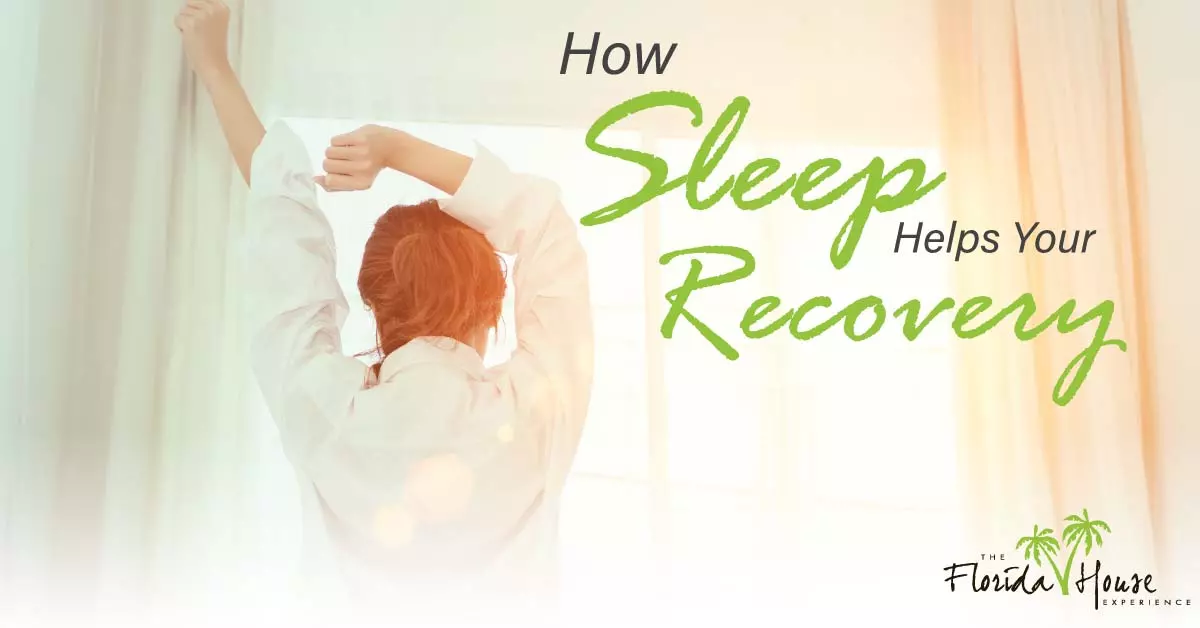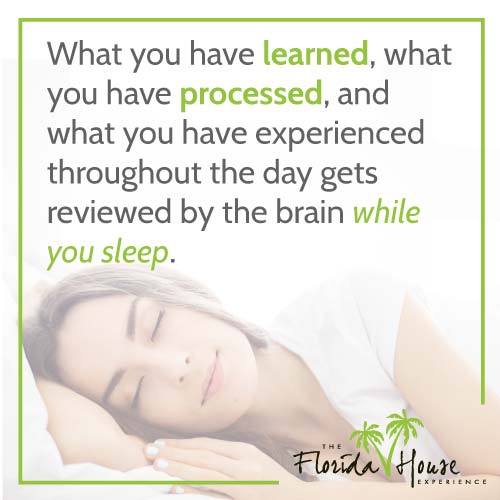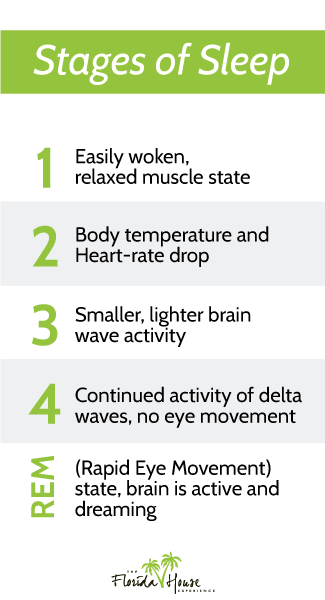
For some people sleep is not a priority. They fully admit that they are able to function without sleep. Many individuals will sacrifice sleep to have more relaxation time after work, sacrifice sleep for going out, or even to do work or school projects. Sleep is thought of as something that is nice, but not needed. This is simply not true. Today we will be talking about the incredible benefits of taking a snooze. Here are just a few ways sleeping is good for you.
- Heals your body
- Burns an incredible amount of calories
- Makes you smarter
- Promotes healthy heart function and longevity
While sleep is good for regular health, it really shines in recovery. Recovery has sleep as one of its most important features. Without a proper sleep schedule (which many recovering addicts struggle with) it can be difficult to maintain sobriety.
Why Sleep Is Important in General
 When you lie down after a long day, it may feel like your body does the equivalent of a laptop going into rest mode. However, sleep is actually a very active process for the body, particularly for the brain. First things first, when you sleep, the pathways in your brain continually get carved out. What you have learned, what you have processed, and what you have experienced throughout the day gets reviewed by the brain. Those pathways continue to get carved, so in a way, your brain is still “learning” while you sleep. Your brain essentially decides what it should store, and what it should throw away. If you want to retain what you have learned during the day, be sure to get enough sleep that night.
When you lie down after a long day, it may feel like your body does the equivalent of a laptop going into rest mode. However, sleep is actually a very active process for the body, particularly for the brain. First things first, when you sleep, the pathways in your brain continually get carved out. What you have learned, what you have processed, and what you have experienced throughout the day gets reviewed by the brain. Those pathways continue to get carved, so in a way, your brain is still “learning” while you sleep. Your brain essentially decides what it should store, and what it should throw away. If you want to retain what you have learned during the day, be sure to get enough sleep that night.
Along with this, your body produces more hunger hormones when you are not well rested. Thus, it is much easier for someone to manage a healthy lifestyle if they are continuously well rested. A healthy lifestyle, combined with well-rested life, maintains happiness in an individual. Beyond being physically fit or obese, sleep can lead to an increased adversity to cardiovascular disease. Not getting enough sleep, generally less than six hours a night, could cause the release of inflammation proteins in the blood and in the body. This can cause the dysregulation of the immune system. This link is not only to stop heart attacks, but sleep involves all cardiovascular diseases. Anything from cancer to arthritis could be at risk without sufficient sleep. When you review the facts, you will realize that getting a good night’s rest is important for life as well as recovery.
The Stages of Sleep
The first stage is the lightest stage of sleep. In this stage you can be awoken easily, you drift in and out of sleep, and muscle activity slows down. If you have ever experienced a sudden jolt, due to a muscle contraction, you have experienced the first stage of sleep. Stage two is when the body begins to prepare for deep sleep. What happens is your body temperature begins to drop rapidly along with the rate of your heartbeat. Eye movement stops as well, and brain waves begin to slow down as well. There is only an occasional burst of brain waves in this stage. When a person enters the third stage of sleep, they begin to have smaller, lighter brain waves, mixed with delta waves. Delta waves are extremely slow brain waves. Although this is not the “dream stage” of sleep just yet, it is the stage where people will experience night terrors, sleepwalking, talking during sleep, and wetting the bed. Stage four is very similar to stage three. Continued experience of Delta waves with no eye movement, the brain is gearing up for the final stage, REM sleep. The final stage of the sleep process is REM (rapid eye movement) sleep. The brain functions in a similar manner to a waking state, and the eyes shift rapidly back and forth. This is the dream state of sleep, if a person is awoken during REM sleep they will remember their dreams. The brain is active during this stage, and oddly enough, some psychologists seem to think that dream is not a side-product of sleep, but the whole point. Now, moving onto how recovery and sleep can benefit one another.
Why and How Sleep is Affected By Substance Abuse
 While as many as 20% of Americans use alcohol to induce sleep, is it actually good for your sleep. Since alcohol is a depressant, it may make you feel pretty drowsy. This might seem all good at first, however, later on, it can become a danger to proper sleep. Adenosine is produced in the brain after having a few drinks, this is the chemical that produces a sleepy feeling. However, it subsides as quickly as it came, and many can be up in the middle of the night, having their circadian rhythm interrupted. As silly as it is, alcohol can cause you to take numerous bathroom trips, which also interrupts the rhythm as well. On a more serious note, it can enhance breathing problems and make you more prone to sleep apnea. Most importantly, it disrupts REM sleep, the most beneficial stage of sleep. Clearly, it can harm recovery.
While as many as 20% of Americans use alcohol to induce sleep, is it actually good for your sleep. Since alcohol is a depressant, it may make you feel pretty drowsy. This might seem all good at first, however, later on, it can become a danger to proper sleep. Adenosine is produced in the brain after having a few drinks, this is the chemical that produces a sleepy feeling. However, it subsides as quickly as it came, and many can be up in the middle of the night, having their circadian rhythm interrupted. As silly as it is, alcohol can cause you to take numerous bathroom trips, which also interrupts the rhythm as well. On a more serious note, it can enhance breathing problems and make you more prone to sleep apnea. Most importantly, it disrupts REM sleep, the most beneficial stage of sleep. Clearly, it can harm recovery.
Cocaine has a different approach. It is important to understand that the pathways in the brain are all linked. When cocaine changes the reward system, motivation centers, and memory circuits in the brain, it has a larger effect. People may report having good sleep in early stages of drug treatment or recovery, however, this may not be true. Cocaine seems to change the body’s way it lets it know it needs sleep. Thus, these people may be getting deprived of a healthy amount of sleep.
Opiates, including heroin and painkillers, do a number on REM sleep. This is slightly scary since REM sleep is so important, especially to drug treatment and recovery. Adequate REM sleep is related to the ability to remember and retain memory, which opiates change. They disrupt and can even block REM sleep.
Tips on Getting Better Sleep to Help Your Recovery
If you are struggling with an addiction or looking to seek drug treatment, look no further than our incredible recovery facilities. A few tips on getting better sleep are as follows. Do not toss and turn. If you are in bed and find you are unable to get sleep, tossing and turning will only increase the anxiety. Get up, take a walk, do something soothing, drink some tea, and try again.
Make your room extremely comfortable. Your whole room and bed should be a space of comfort. On top of this, it is helpful to be prescribed something. Since we are all about individual focus, ask a doctor to prescribe you medication, or seek assistance in therapy. Finally, do something active during the day, that will make you tired, and have something soothing going on at night. Whether that is rain noises, a soothing smell, it doesn’t matter. Daily exercise also promotes healthy sleep. Those who exercise daily have a much easier time falling and staying asleep.
Contact Us
Are you struggling with an addiction, which is only making it harder to sleep? We at FHE Health want to help you in any way we can. The only way we can help you is if you seek treatment. We have some of the best locations and facilities in the country, and we have a contact number that will connect you to a specialist at any time, (833) 596-3502. Please do not hesitate, seek help today. Whether you need help personally or are looking to help a loved one, we can give you the answers to your questions and tools necessary to fight back against addiction. FHE Health has served both substance abuse and mental health disorders for decades and can help you on your journey to a happier, healthier life.






